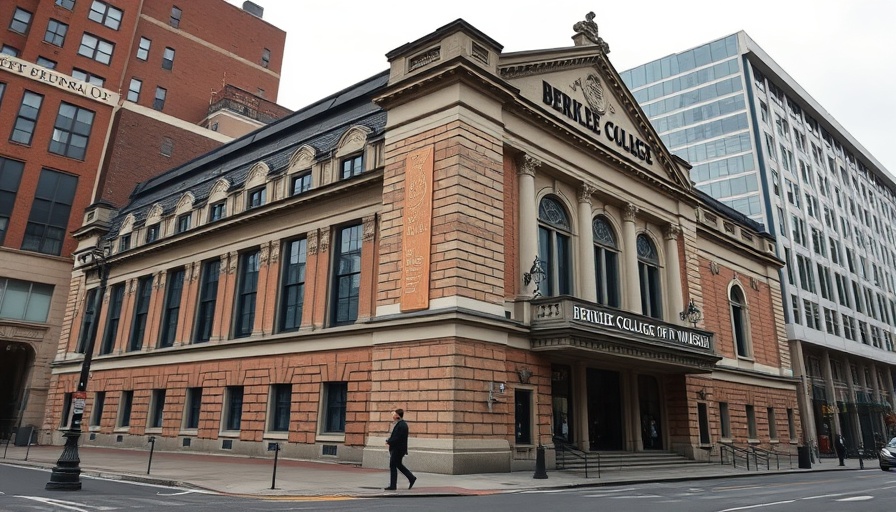
Berklee College of Music: A Turning Tide
The recent decision by Berklee College of Music to cut 70 staff members marks a significant moment for one of America’s leading music institutions. This reduction, amounting to three percent of its total workforce, underscores the financial pressures facing educational institutions nationwide, particularly in Massachusetts. While no faculty members were laid off, the loss of these support staff reflects mounting challenges driven by shifting enrollment trends and rising operational costs.
Understanding the Factors Leading to Layoffs
President Jim Lucchese, who took leadership in January, described the layoffs as "difficult but unavoidable" in a recent communiqué to faculty and staff. The pressures include not only inflated operational costs but also a concerning trend in student enrollments. Berklee's student population, which was reported to consist of approximately 40 percent international students, has been notably impacted by stricter immigration policies and a national decline in foreign student enrollment, projected to drop by as much as 40 percent this fall. As highlighted by education experts, this contraction could severely affect Massachusetts colleges reliant on these students for their financial health.
Potential Impact on Berklee's Culture and Economy
The layoffs have sparked significant student protests. Students are worried about the broader implications such decisions will have on the school’s culture and the educational experience itself. With Berklee previously boasting one of the highest concentrations of international students in the Boston area, these staffing cuts may jeopardize the quality and variety of programs offered. Education analysts stress that the vibrant environment fostered by diverse student bodies is at risk, which might indirectly challenge the college's reputation and future enrollment prospects.
Support for Affected Employees and Future Strategies
Despite the challenging circumstances, Berklee plans to offer severance packages, career transition support, and subsidized health care to help affected employees navigate this transition. This approach aligns with an understanding that institutional integrity must be preserved along with the welfare of its community members. Lucchese's letter emphasized that while these layoffs are painful, they are necessary for the college's long-term sustainability.
Looking Ahead: The Need for Adaptive Strategies
The current economic climate begs for innovative strategies to attract and retain international students and bolster financial stability across the educational landscape. As Massachusetts institutions brace for potentially widespread enrollment declines, it is imperative for leaders to re-evaluate how they engage with global communities and adapt to changing educational demands. The fallout from these layoffs and the ongoing negotiations between the Berklee Faculty Union and the administration will likely shape the institution’s trajectory moving forward.
The Berklee community faces uncertain times, and as they navigate these challenges, it’s essential to focus on sustainable practices that support both students and staff alike. Educational institutions, particularly those with a strong international presence, should not only prepare for immediate financial challenges but also cultivate an environment that promotes diversity, creativity, and inclusivity for all its community members.
 Add Row
Add Row  Add
Add 




Write A Comment